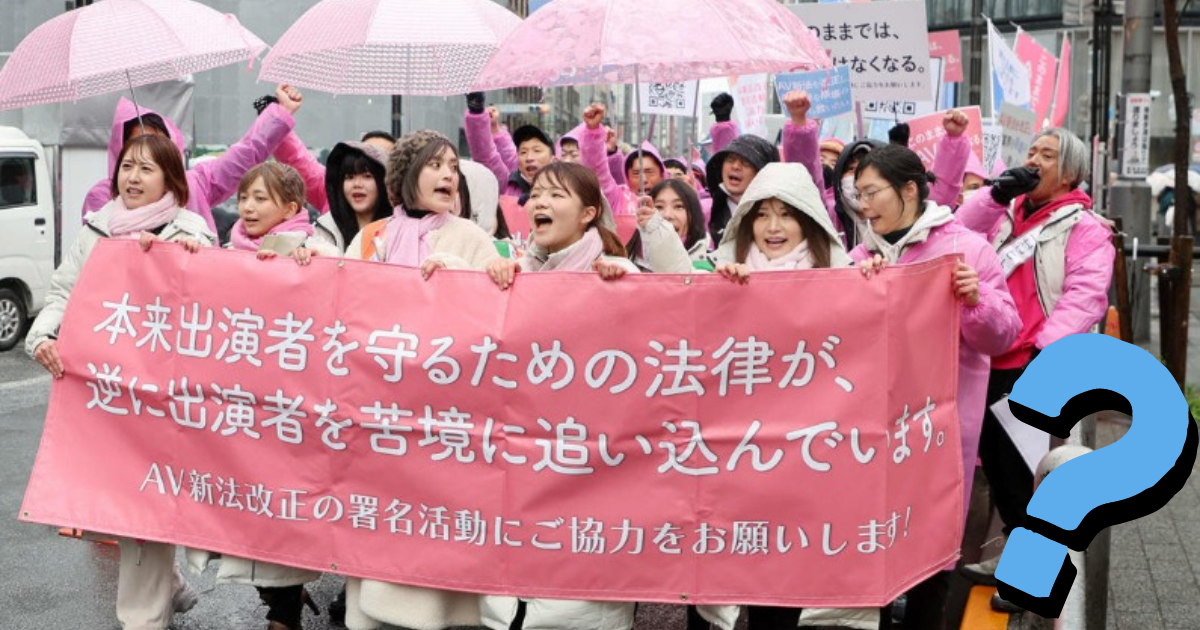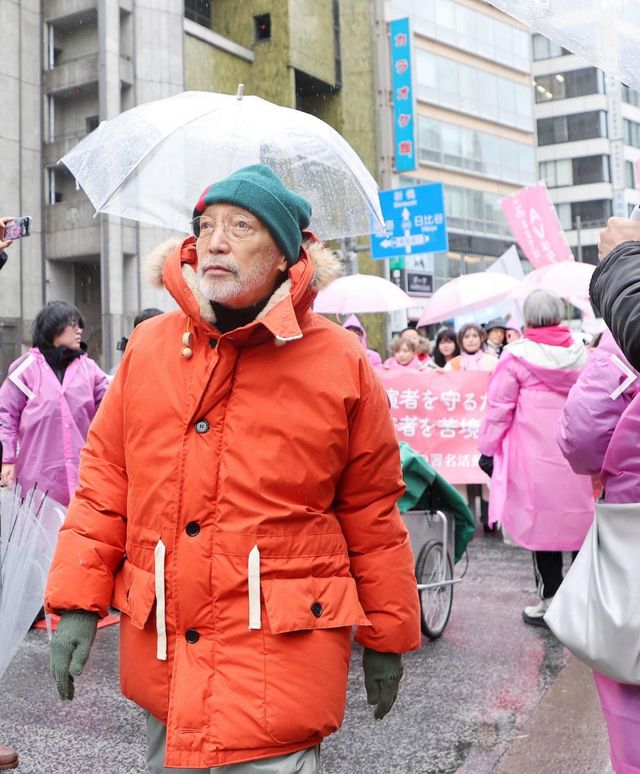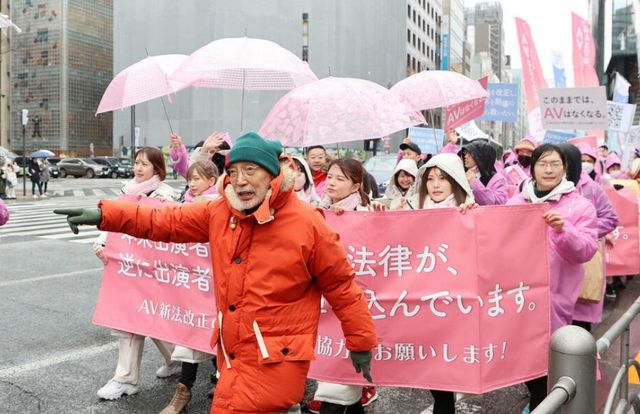Why 100 Japanese Porn Stars Are Protesting The Law That Was Made To Protect Them

Japanese adult video (AV) actresses made headlines on February 23 when they marched through the streets of Ginza, Tokyo, carrying pink umbrellas and a large tarpaulin.
100 AV stars were protesting the current “AV Law” that aimed to protect women from predatory co-stars and companies. According to Unseen Japan, the law stipulates that filming can only start one month after a talent signs their contract and they cannot release films until four months after production ends. Producers are also required to give a copy of the contract to the signee.
- Companies must provide a copy of any contract signed. They must explain what the production expects from performers.
- No matter their age, participants have the legal right to break their contract, for any reason, for a full year after the production finishes.
- Production cannot start until a month after signing a contract. The company cannot release the final product until four months after production wraps up.

Though the intent behind it was positive, industry workers say it has been hurting their business instead. Actress Kanae Nozomi said in an interview that her shoots were cancelled as a result of the law, claiming that it paints all production companies in a bad light.
The law doesn’t protect people. It takes work away from working actresses. Who benefits from that? I don’t oppose the law in its entirety. But legitimate productions go the extra mile to ensure consent at the time of signing. They shouldn’t paint all of us with a broad brush because of a few bad actors.
— Actress Kanae Nozomi

TV producer and talent Terry Ito, 74, led the march on the streets of Ginza, calling out, “Protect Freedom of Speech and Freedom of Choice in Employment!” and “Recognize AV as content.”
He explained that the AV law has backfired. On one hand, it protects women from being coerced into porn, with many being forced to sign contracts that put them in unfavorable positions. On the other hand, protestors claim that the months-long bans are too restrictive. There has also been a notable decrease in the number of productions and new talent. Actors are now heading to underground production crews to continue to find work, becoming unprotected by the law in the meantime.
Alcohol was banned and then the mafia made it. Actresses are only going to the miserable and dark world overseas.
— Terry Ito

At the end of the day, the law that was made to protect the actresses is now opening a discourse on the negative impact it has had on their income.
It’s about protecting every human being’s dignity. Suddenly, one day, we were robbed of our income. I want people to understand that.
— Actor Nimura Hitoshi
